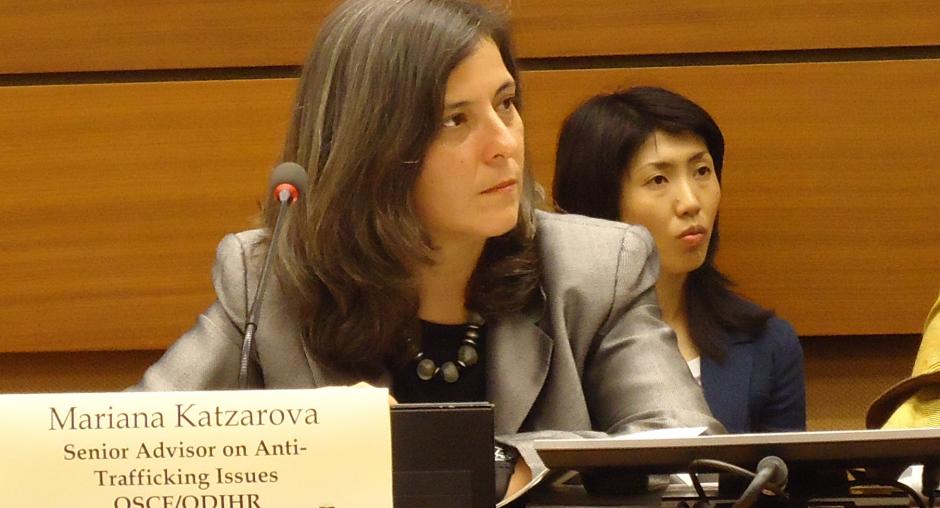ODIHR and partners host meeting in Geneva on compensation for victims of trafficking

A special panel discussion on access to justice and compensation for victims of trafficking was held in Geneva on 31 May.
Organized by the OSCE’s Office for Democratic Institutions and Human Rights (ODIHR), in co-operation with LaStrada International, Anti-Slavery International, and the Permanent Missions of Germany and the Philippines to the UN, the event was held on the occasion of the 17th Session of the United Nations Human Rights Council. It was opened by the UN High Commissioner for Human Rights, Navi Pillay. The Council of Europe’s expert group on trafficking (GRETA) and a coalition of NGOs, trade unions, and legal practitioners from 14 European countries (COMP.ACT) participated.
In her keynote address, the UN Special Rapporteur on Trafficking in Persons, Joy Ngozi Ezeilo, said: "It is a state obligation to ensure access to justice and effective remedies." This was just a prelude to the formal report that Ezeilo presented to the Council the next day, which included draft Basic Principles on the Right to Effective Remedy for Trafficked Persons.
Speaking on behalf of ODIHR, Senior Anti-Trafficking Advisor Mariana Katzarova said it was time to reinforce commitments and rethink strategies: “States need to review their current compensation mechanisms and determine whether these are delivering justice to trafficked persons.”
The issue of adequate compensation for trafficked persons has been a priority area at ODIHR for some time. In 2008, ODIHR published a study called Compensation for Trafficked and Exploited Persons in the OSCE Region, which outlined the many difficulties in law and practice that victims face in making successful claims for compensation. One key issue that the report highlights is that individuals are limited in their access to justice because of insufficient information on their rights and a lack of legal assistance to claim them. To date, few victims have claimed compensation. In even fewer cases has compensation been awarded, and in only a handful of cases has it actually been paid out.
In 2007 and 2008 Ministerial Council Decisions, OSCE participating States committed themselves to enhancing criminal justice responses to trafficking in human beings and ensuring effective access to justice for the victims.
